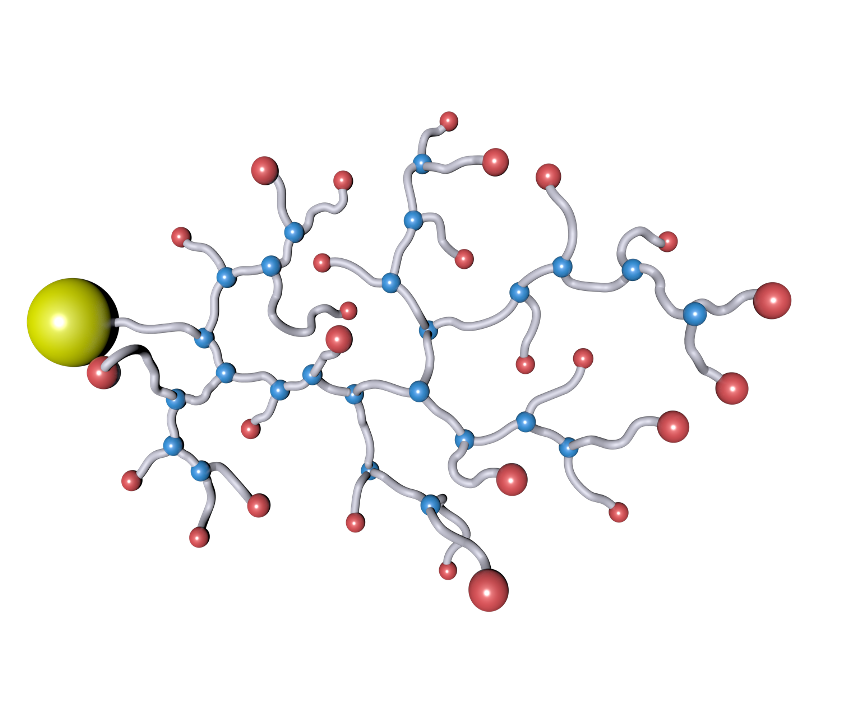Polymers in Construction: Stronger, Lighter, and More Durable
Polymers in Construction: Stronger, Lighter, and More Durable
Blog Article
Making The Most Of the Possible of Polymers: Discover the Complex Benefits and Practical Uses
In the substantial landscape of material science, polymers attract attention as flexible substances that have penetrated almost every facet of contemporary life. Their application spans numerous industries, from production and construction to healthcare and innovation. The multifaceted advantages and practical usages of polymers remain to advance, providing ingenious services to intricate challenges. By exploring exactly how polymers can enhance product sturdiness, drive sustainability initiatives, transform healthcare remedies, and lead the way for future technical innovations, we can reveal a world of possibilities waiting to be used.
Value of Polymers in Modern Industries
Polymers play a critical duty in modern-day sectors, acting as versatile materials that drive development and effectiveness throughout a large range of sectors. These complicated molecules, made up of repeated subunits, have revolutionized industries such as automobile, aerospace, electronic devices, health care, and much more. In the vehicle field, polymers have actually enabled the growth of lightweight yet resilient parts, improving gas effectiveness and total performance. Aerospace industries rely upon polymers for their high strength-to-weight proportion, essential for airplane and spacecraft building and construction. The electronic devices market gain from the insulating residential properties of polymers, vital for making motherboard and digital devices (Polymers). In addition, polymers are thoroughly made use of in the health care market for drug shipment systems, medical tools, and biocompatible materials. Their flexibility, longevity, and cost-effectiveness make polymers vital in modern-day production procedures, fostering advancements and driving progress in different markets worldwide. Welcoming the capacity of polymers is vital to opening additional advancements and attending to the developing needs of today's commercial landscape.
Enhancing Product Resilience With Polymers
With a focus on long life and resilience, integrating innovative polymer modern technologies into product style has actually come to be a cornerstone of boosting resilience in modern manufacturing processes. Polymers offer a large range of residential or commercial properties that add to the total durability of products. One key benefit is their resistance to corrosion, chemicals, and weathering, making them optimal for usage in different sectors where exposure to harsh problems is common.
In addition, polymers can be tailored to satisfy details durability needs, allowing suppliers to tailor products according to their meant usage and expected lifespan. By including polymers into product elements, suppliers can enhance toughness and impact resistance, lowering the likelihood of damage or put on with time.
In addition, polymers are light-weight yet durable, providing longevity without adding unnecessary weight to products. This characteristic is specifically advantageous in industries such as aerospace and automotive, where light-weight products are necessary for boosting gas efficiency and overall performance.
Sustainability Advancements Through Polymer Development
In the world of contemporary manufacturing and item style, the cutting-edge application of polymers is driving substantial advancements in sustainability techniques. Polymer technology plays a critical function in improving sustainability by providing options that minimize environmental influence throughout various sectors. One essential aspect where polymers succeed is in important source allowing the Look At This advancement of lightweight yet resilient materials that add to fuel efficiency in transportation and minimize general energy intake. Furthermore, the recyclability and biodegradability of particular polymers better advertise lasting practices by decreasing waste and air pollution.
Furthermore, innovations in polymer innovation have actually caused the development of bio-based and sustainable polymers, stemmed from all-natural resources such as plants, that provide a more sustainable alternative to standard petroleum-based plastics. These eco-friendly polymers not only aid reduce reliance on fossil fuels yet additionally lower greenhouse gas discharges throughout production. By integrating these innovative polymers right into producing processes, business can reduce their environmental impact and move towards even more sustainable methods, lining up with global efforts to combat climate adjustment and advertise a round economic situation.
Polymers in Healthcare: Revolutionizing Medical Solutions

Among the crucial locations where polymers are making significant strides is in the advancement of targeted medicine distribution systems. By enveloping medicines within polymeric nanoparticles or micelles, scientists can enhance medication Full Article stability, improve bioavailability, and make it possible for regulated release, leading to much more efficient treatment regimens with reduced side effects.
Furthermore, polymers are instrumental in the field of regenerative medicine, where they are used to produce scaffolds that resemble the extracellular matrix, providing support for cell development and cells regeneration. This innovation holds enormous assurance for fixing damaged organs, advertising wound recovery, and advancing tailored medication strategies.
Basically, the assimilation of polymers in healthcare is driving development, enhancing treatment efficiency, and eventually boosting patient outcomes in methods previously thought unattainable.
Future Applications and Developments in Polymer Technology
Advancing at the forefront of clinical exploration, polymer technology continues to lead the method for groundbreaking applications and advancements forming varied markets. In the realm of lasting packaging, naturally degradable polymers are gaining traction as ecologically pleasant options to conventional plastics. These polymers break down normally, decreasing the environmental influence of single-use items. In the area of electronics, conductive polymers are transforming wearable modern technology and versatile electronics. Their special buildings enable the growth of stretchable circuits and sensors, making it possible for brand-new possibilities in health care tracking and smart garments. Furthermore, polymer nanocomposites are improving the mechanical and thermal residential properties of products, causing stronger and lighter components in aerospace and vehicle markets. Looking ahead, scientists are exploring the possibility of shape-memory polymers for applications in robotics and biomedical devices, where materials that can "bear in mind" and change to their initial forms use interesting possibilities for technology. As polymer technology continues to advance, the future holds unlimited possibilities for groundbreaking improvements throughout various markets.
Final Thought

Report this page